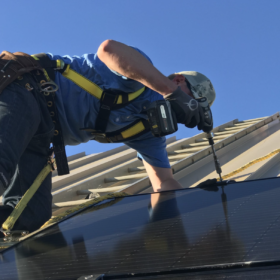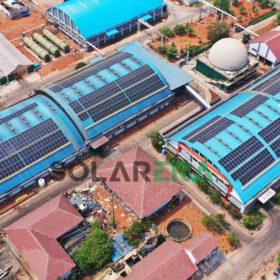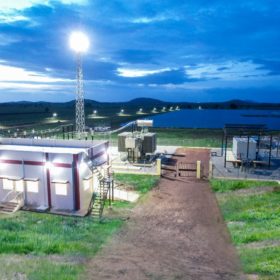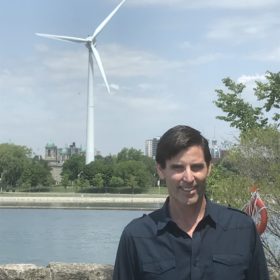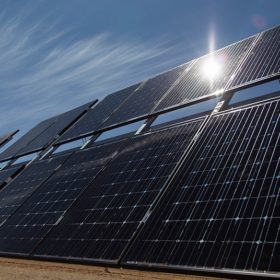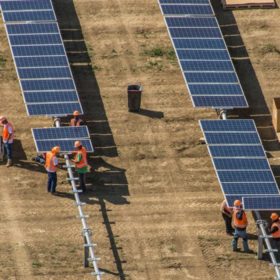Metal roofing for solar PV
Metal roofing has become a driver for roof type selection in many cases because not only is a metal/solar roof system less expensive upfront than other roof system combinations, but it also leads to improvements in the lifetime return on investment of the system.
Cleantech Solar to commission 18.7 MW captive PV plant for Saint-Gobain India
Cleantech Solar will develop the PV plant at its solar park in Tamil Nadu and supply clean power to Saint-Gobain India’s manufacturing facilities.
Amended Energy Conservation Bill to drive renewables adoption
The amended Energy Conservation Bill sets a minimum usage clause for non-fossil fuel by high carbon-emitting sectors such as power, transport, industry, and buildings. It also includes provisions to incentivize decarbonization efforts by allowing carbon trading.
NTPC’s 56 MW Kawas solar project now fully operational
NTPC has switched on its third solar project this month, following the completion of the 296 MW Fatehgarh and 250 MW Kolyat PV parks in Rajasthan.
Greenko to develop 400 MW of wind, solar for Hindalco’s aluminum smelter
Renewables major Greenko will develop 375 MW to 400 MW of solar and wind capacity to power Hindalco’s aluminum smeltering operations in Odisha. It will back the renewables generation with hydro pump storage capacity in Andhra Pradesh to ensure 100 MW of round-the-clock supply to Hindalco.
JSW Energy to acquire 1.7 GW of operational renewables from Mytrah Energy
JSW Energy, a private-sector power producer, has revealed that its green energy arm has signed an agreement to acquire 1.33 GW of wind and 422 MW of solar assets from Mytrah Energy. The assets are spread across nine states in India.
Rays Power Infra switches on 150 MW solar plant in Karnataka
Rajasthan-headquartered Rays Power Infra has commissioned a 150 MW (DC) solar plant in Raichur and Koppal, Karnataka.
Study finds 100% renewables would pay off within 6 years
New research from Stanford University researcher Mark Jacobson outlines how 145 countries could meet 100% of their business-as-usual energy needs with wind, water, solar and energy storage. The study finds that in all the countries considered, lower-cost energy and other benefits mean the required investment for transition is paid off within six years. The study also estimates that worldwide, such a transition would create 28 million more jobs than it lost.
Shell completes acquisition of Sprng Energy
Shell has completed the $1.55 billion acquisition of Solenergi Power, an Actis company holding 100% of Indian renewables developer Sprng Energy.
World could install 250 GW of solar this year, claims Bloomberg analyst
Rob Barnett, a senior clean energy analyst for Bloomberg, forecasts a 30% increase in global PV deployment this year, and double-digit growth through 2025.
